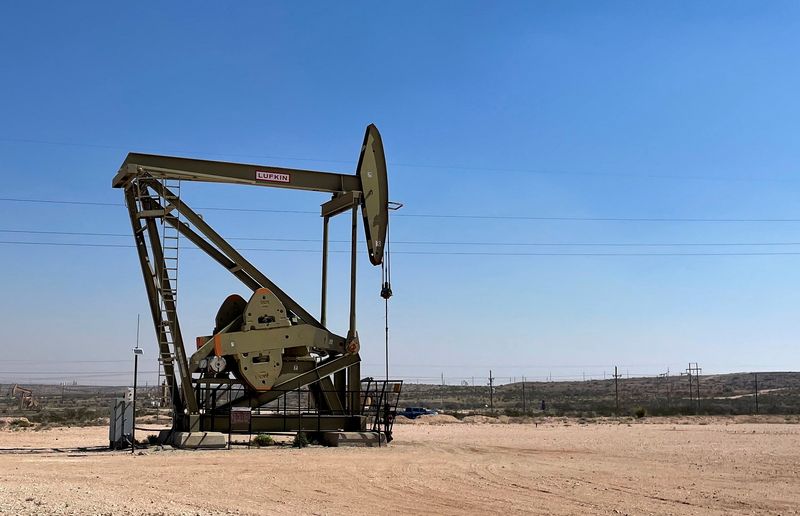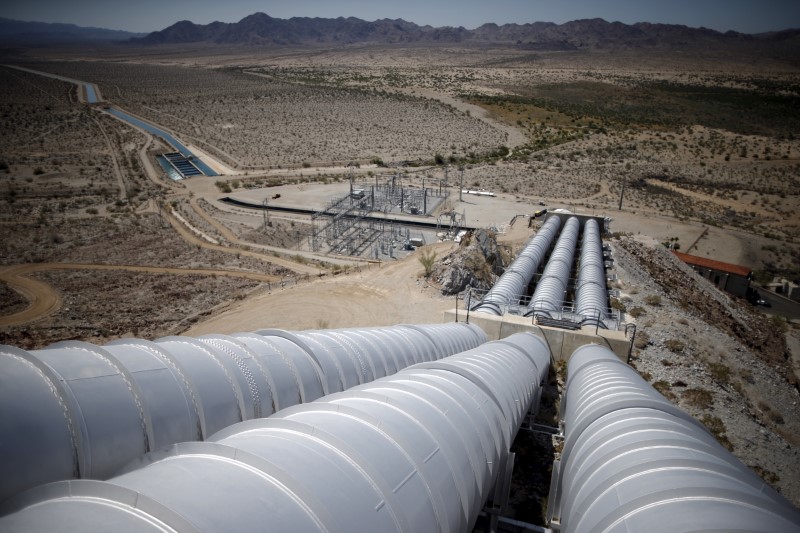By Georgina McCartney
HOUSTON (Reuters) – U.S. energy executives expect faster permitting times for drilling on federal lands under newly-elected President Donald Trump, according to a Federal Reserve Bank of Dallas survey released on Thursday.
The overall outlook improved and activity levels increased, while uncertainty decreased in the final quarter of 2024, according to a December survey of 134 energy companies in Texas, Louisiana and New Mexico.
Trump has promised to lower gasoline prices and speed up permitting for energy projects under his campaign mantra “drill, baby drill.”
A third of executives surveyed said they believe the permitting process will move significantly faster over the next four years.
“We expect regulatory compliance issues to decrease, mainly due to a new administration that is pro-business and pro-fossil fuel production,” said an executive at an exploration and production (E&P) company, who was not identified. identified by the Dallas Fed.
Trump’s transition team is poised to quickly roll out a broad energy package that includes approving export licenses for new liquid production (LNG) projects and more federal land and offshore oil drilling.
“The new administration will lift regulations, stop subsidizing green energy and pursue LNG expansions to increase demand for natural gas,” another E&P executive told pollsters.
The new administration could benefit hard-hit oilfield services companies, some executives said, citing a new wave of optimism for the first quarter of 2025.
The research found that there is a large gap between large and small producers in their plans to tackle greenhouse gas emissions. Nearly two-thirds of larger companies said they have plans to reduce methane and 86% plan to reduce the combustion of unwanted gas. By comparison, only 29% of smaller companies have plans to reduce methane and only 14% plan to reduce flaring, the report found.
POTENTIAL BOTTLE POINTS FOR 2025
Weak natural gas prices continued to put pressure on some exploration and production companies in the fourth quarter, executives said.
Gas prices at the Waha Hub in West Texas have turned negative a record number of times in 2024. Negative gas prices force operators to pay for the purchase of their gas, reducing oil profit margins.
“The low price for natural gas is crushing current cash flow. For smaller, independent companies, cash flow is what fuels future investments,” reported one executive.
Mergers and acquisitions have hurt service companies, dampening growth compared with the previous three years as manufacturers consolidated and either stayed flat or cut capital spending, they said.
Lower oil demand and efficiencies in extraction technology have put pressure on the services sector, with greater efficiency boosting production but not activity levels.
“It appears that supply and demand are in close balance, while production is sufficient to meet market needs,” said an executive.

On average, respondents expect a West Texas Intermediate (WTI) oil price of $71 per barrel by the end of 2025, with responses ranging from $53 to $100 per barrel.
Meanwhile, survey participants expect a Henry Hub natural gas price of $3.19 per million British thermal units over the same period.


